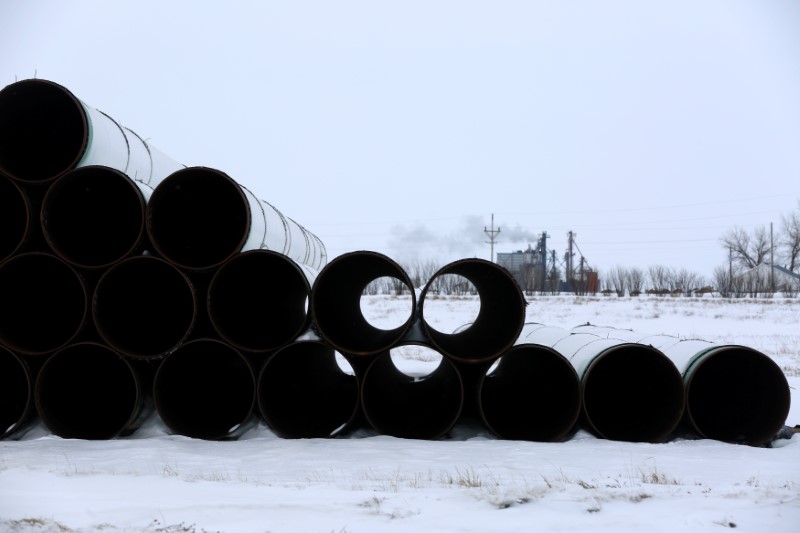CALGARY, Alberta, Sept 6 (Reuters) - Kinder Morgan Canada Ltd KML.TO on Wednesday named six major contractors for its Trans Mountain pipeline expansion and said construction is on schedule, even as significant hurdles remain for the project.
The C$7.4 billion ($5.9 billion) project, which would twin the current Trans Mountain pipeline, has obtained federal approval but faces opposition from environmental and aboriginal groups and the provincial government of British Columbia, through which it passes.
Calling the step a "significant milestone," the company said it signed memos of understanding with contractors covering seven pipeline segments from Edmonton, Alberta to southwestern British Columbia. The contractors include pipeline specialists working in joint ventures and partnerships.
Among the expansion's obstacles, a legal challenge to be heard in October could overturn Trans Mountain approval, and British Columbia last month barred any Trans Mountain work on public land until Kinder Morgan further consults the aboriginal groups affected. precise route for the expansion's new pipeline is also subject to lengthy hearings that could force changes. Morgan Canada, a division of Houston's Kinder Morgan Inc (NYSE:KMI) KMI.N , has long maintained the project remains on track and that construction, while beginning this month, will begin largely with the expansion of a marine terminal, not actual pipeline work.
The company reiterated that position on Wednesday, saying that majority of pipeline construction is scheduled for 2018 and 2019, and that the expansion will be online at the end of the 2019.
"Getting the construction contractors on board represents a significant milestone," company President Ian Anderson said in a statement.
The Trans Mountain expansion would nearly triple the capacity of the existing pipeline from Canada's oil heartland of Alberta to the west coast and significantly increase crude tanker traffic.
Canadian crude producers, whose landlocked product trades at a discount to the West Texas Intermediate benchmark, say they need more pipeline capacity to fetch better prices.
